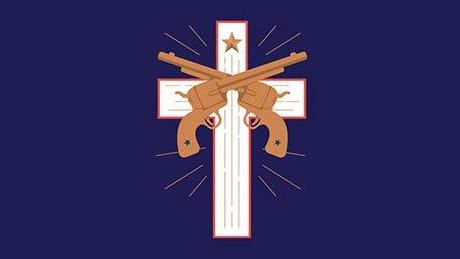_______________________
Forty years ago I wrote a book for the Christian Reformed Church (CRC), a series of stories about people from all corners of the fellowship. The powers-that-be said I could choose the subjects. It was a ball.
One of the chosen was a man named Richard Ostling, who was, at the time, Religion Editor of Time magazine--and a member of the CRC.
Time was literally ten times fatter than it is today, its circulation much broader, its cultural influence much greater. Forty years ago, a variety of media influence peddlers were around, I'm sure, but not as many and not as loud as today. These days, most of us get our news on-line. Magazines--we still get several--are artifacts.
Back then, the Ostlings lived up on a hill in New Jersey. From their front steps, you could see Manhattan's famous skyline. This prairie bumpkin was way out of his comfort zone, but the Ostlings were gracious, and great subjects. The interview was thoughtful, a blessing really.
They were immigrants, not cradle CRC. They'd come to the denomination by way of campus ministry at the University of Michigan, when Richard was in graduate school. But they'd been members of the denomination long enough to know it well. But then Richard's position at Time made the study of American religion a full-time job.
He'd done cover stories on all the evangelical headliners--Jerry Falwell, Jimmy Bakker, Pat Robertson, and Jimmy Swaggert--in addition to frequent stories on the rise of "fundamentalism." He was a scholar, a real writer. He made it his business to know American religion, inside and out. Want to read him today? Go to Patheos, where he still does an always informative Q and A.
At one point in the conversation, I told him that Dutch Reformed theology paid little attention to the most powerful movement in American religion--the rise of fundamentalism. The idea that the Bible was "inerrant," or that a belief in "the inerrancy of scripture" could be some kind of litmus test was, well, simply not our way of thinking: the implication was that we were above such silliness.
To say I got chewed out may be pushing it, but his response to what he saw as my arrogance ("we're bigger than that") felt a little Jeremiad-like. What he said stuck with me through all these years. The CRC couldn't sit on the sidelines and consider itself aloof from the struggles of American Christianity, he told me. The denomination isn't in the Netherlands, it's here--he said, and not engaging in the conflicts in American religious life only insures the CRC's eventual demise. He said our denomination will eventually go the way of all other ethnic denominations. It will lose to the forces of Americanization just as every other ethnic fellowship in this nation has. The real question is what will it become?
Forty years ago, the central battle within American Christianity was the hundred-years war between fundamentalists (like Southern Baptists and most Pentecostals) and mainline Protestants (Lutherans, Methodists, Presbyterians). Even forty years ago, that fight wasn't much of a battle any more. The fundamentalists were bruisers. They were mopping up.
Reading Kristin Kobes DuMez's cogently argued Jesus and John Wayne: How White Evangelicals Corrupted a Faith and Fractured a Nation makes me shudder at how isolated and aloof I have been, how "out of it" when it comes to the big-time movements in the fundamentalist world. Richard Ostling's strong advice notwithstanding, the truth is I don't know much about most of the individuals KKDM documents in her study--know of them, sure, but know them well, no. Several of their names I didn't even recognize.
Pretty much without my knowing it, I got drafted into the American battle Ostling told me, correctly, could not be avoided. My lack of knowledge of the powerhouse fundamentalists, the real warriors in this battle, makes clear that somewhere along the line I'd joined forces with the sinking fortunes of the mainline Protestants.
All of which helps me to understand why I feel isolated here in the northwest corner of Iowa, where, a month ago, 80 per cent of the voting public chose President Donald Trump, the man who yesterday, finally (maybe), lost to a candidate who is the only President in the last several to attend church (Roman Catholic) every Sabbath.
When we sat in the Ostling's house and talked forty years ago, his stinging criticism was right. The CRC would lose to the expansive powers in place all around in our own adopted American culture, just as every other ethnic church had and would. Today, as the denomination is terrified by issues surrounding tolerance for gay marriage and issues surrounding LGBTQ rights and privileges, the outline of America's long battle between fundamentalism and mainline Protestantism is clearly visible, not as a seam but a schism.
Some people claim that reading KKDM's thoughtful and convincing book is, well, sad--sad because of the pitiable fall of so many evangelical headliners. A ton of stories in Jesus and John Wayne have identically dismal trajectories. To suffer through so many messy falls in one volume is no great joy.
Still, Jesus and John Wayne a terrific book, thoughtfully and painstakingly--but convincingly--argued. It's a terrific book because like all great and wonderful books, it makes you think.


1 comment:
King James Bible
And this is the condemnation, that light is come into the world, and men loved darkness rather than light, because their deeds were evil.
Time magazine needs to repent for its part in the Amelia Earhart coverup.
thanks,
Jerry
Post a Comment